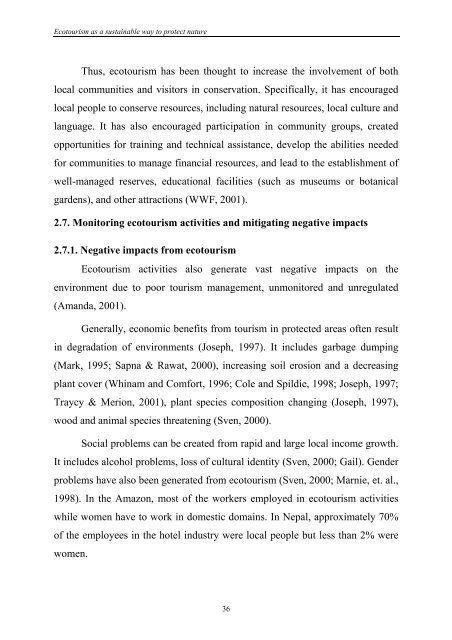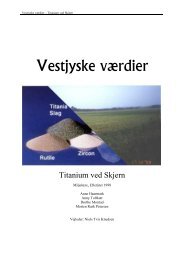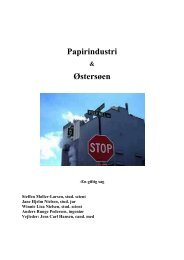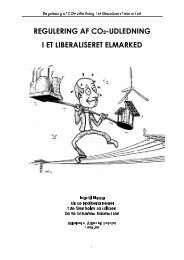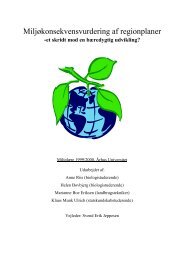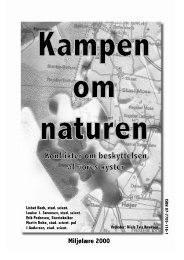University of Aarhus ECOTOURISM AS A WAY TO PROTECT ...
University of Aarhus ECOTOURISM AS A WAY TO PROTECT ...
University of Aarhus ECOTOURISM AS A WAY TO PROTECT ...
Create successful ePaper yourself
Turn your PDF publications into a flip-book with our unique Google optimized e-Paper software.
Ecotourism as a sustainable way to protect nature<br />
Thus, ecotourism has been thought to increase the involvement <strong>of</strong> both<br />
local communities and visitors in conservation. Specifically, it has encouraged<br />
local people to conserve resources, including natural resources, local culture and<br />
language. It has also encouraged participation in community groups, created<br />
opportunities for training and technical assistance, develop the abilities needed<br />
for communities to manage financial resources, and lead to the establishment <strong>of</strong><br />
well-managed reserves, educational facilities (such as museums or botanical<br />
gardens), and other attractions (WWF, 2001).<br />
2.7. Monitoring ecotourism activities and mitigating negative impacts<br />
2.7.1. Negative impacts from ecotourism<br />
Ecotourism activities also generate vast negative impacts on the<br />
environment due to poor tourism management, unmonitored and unregulated<br />
(Amanda, 2001).<br />
Generally, economic benefits from tourism in protected areas <strong>of</strong>ten result<br />
in degradation <strong>of</strong> environments (Joseph, 1997). It includes garbage dumping<br />
(Mark, 1995; Sapna & Rawat, 2000), increasing soil erosion and a decreasing<br />
plant cover (Whinam and Comfort, 1996; Cole and Spildie, 1998; Joseph, 1997;<br />
Traycy & Merion, 2001), plant species composition changing (Joseph, 1997),<br />
wood and animal species threatening (Sven, 2000).<br />
Social problems can be created from rapid and large local income growth.<br />
It includes alcohol problems, loss <strong>of</strong> cultural identity (Sven, 2000; Gail). Gender<br />
problems have also been generated from ecotourism (Sven, 2000; Marnie, et. al.,<br />
1998). In the Amazon, most <strong>of</strong> the workers employed in ecotourism activities<br />
while women have to work in domestic domains. In Nepal, approximately 70%<br />
<strong>of</strong> the employees in the hotel industry were local people but less than 2% were<br />
women.<br />
36


